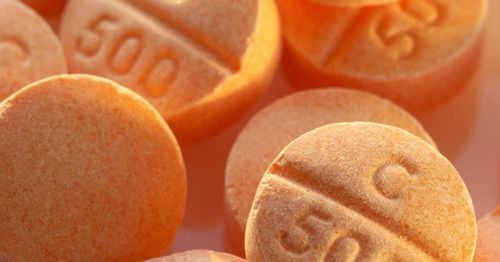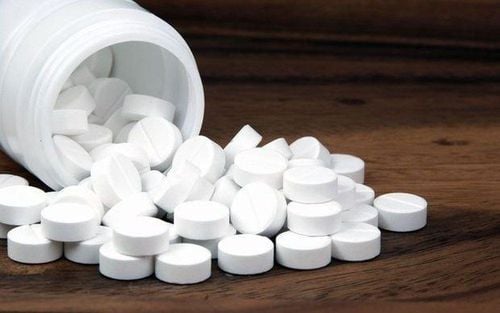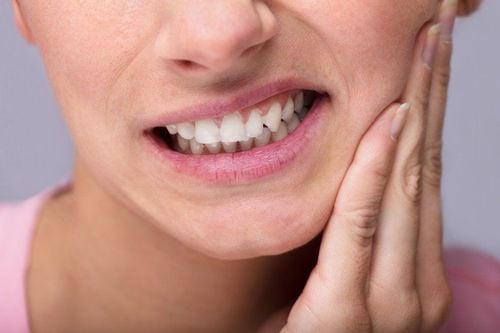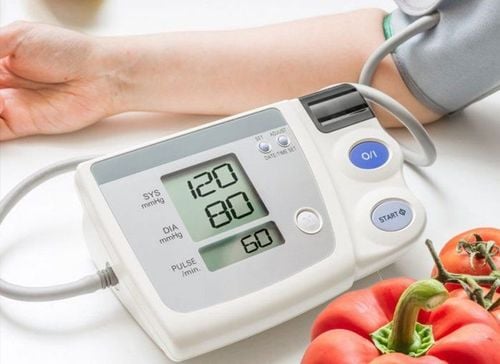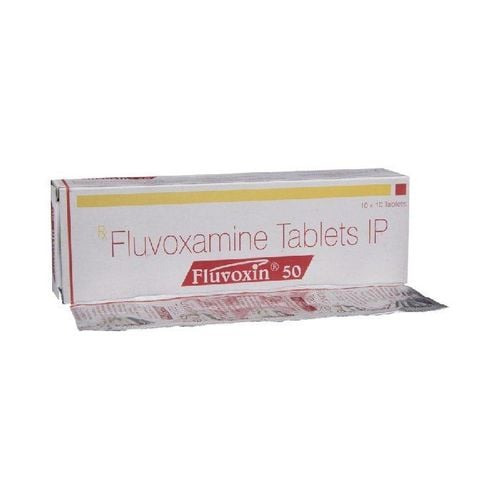This is an automatically translated article.
The article is professionally consulted by Doctor of Dentistry - Jaw - Face - Department of Examination & Internal Medicine - Vinmec Hai Phong International General HospitalDental care has long been a focus. Teeth are very sensitive to heat, food, even brushing the wrong teeth can damage enamel. Although brushing teeth daily, but some habits, such as eating ice, chewing hard things, smoking, ... will cause teeth to be damaged quickly.
1. Chewing ice
Many people often think that ice is harmless because of its completely natural ingredients, no sugar and no chemicals. However, chewing on hard and cold things like ice can chip or even crack your teeth. The habit of chewing ice also irritates the soft tissues inside the teeth, causing frequent toothache. Foods that are too hot and too cold will trigger quick, strong, or long-lasting pain. So, if you feel "sad" and want to eat ice, you should choose sugar-free gum instead.2. Do not wear a mouth guard when playing sports
A mouth guard should be worn when playing football, hockey or any other contact and impact sport. Without a molded plastic guard to protect your upper jaw, your teeth can be chipped or even knocked out with a strong impact. You can buy a self-fitting mouthguard at a sports store, or have your dentist design one for you.3. Drink milk before sleeping
It's never too early to protect your teeth. Feeding your baby a bottle of juice or formula before bed can make baby teeth more susceptible to decay. Babies who are used to sucking milk before bed will create conditions for their teeth to be flooded with sugar all night. Therefore, it is best to keep the bottle away from the crib.4. Tongue piercing
Tongue piercing is a trend among young people, but accidentally biting a metal nail can crack a tooth. Lip piercings carry a similar risk. Furthermore, metal rubbing against the gums can cause damage, leading to tooth loss.The mouth is also a haven for bacteria, so piercing increases the risk of infections and sores. Another risk of tongue piercing is accidentally stabbing a major blood vessel, causing severe bleeding. So consult your dentist about the health risks before deciding to get a lip or tongue piercing.
5. Teeth grinding
Teeth grinding can wear down teeth over time. The cause of this habit is often due to stress, stress or unconscious actions during sleep, difficult to control. Hard foods should be avoided to help relieve pain and limit tooth damage from this habit. Additionally, wearing a mouth guard at night can prevent damage from grinding your teeth while you sleep.
Nghiến răng khi ngủ
6. Cough syrup, sore throat lozenges
These drugs are widely available but not completely healthy, most of which are loaded with added sugar. So, after sucking on throat-soothing candy or drinking cough syrup, brush your teeth carefully. The sugar in cough drops or hard candy coats your teeth with plaque. The bacteria in plaque then convert the sugar into an acid that eats away at tooth enamel. Ultimately leading to tooth decay.7. Marshmallows
All sweet treats promote tooth decay, especially some candies. Gummies stick to teeth, exposing sugars and acids to enamel for hours. If you want to eat marshmallows, take a few at the same time as your main meal, instead of eating them separately in between. More saliva is produced during meals, which helps wash away candy debris and acids.8. Soda
Candy isn't the only culprit that's high in sugar. Soda water can add up to 11 teaspoons of sugar per serving. Moreover, soda also contains phosphoric and citric acids - two substances that erode tooth enamel. Note, diet soft drinks will cut down on sugar but have more harmful acids in artificial sweeteners.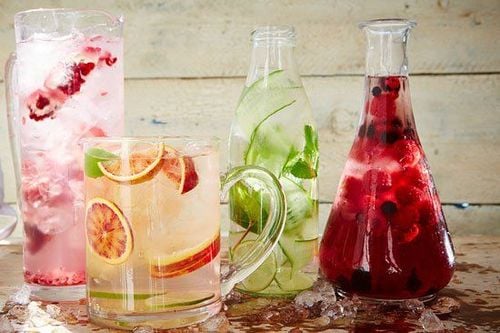
Nước soda có thể ăn mòn men răng
9. Use your teeth to tear the packaging
Opening bottles or plastic packaging with your teeth can be convenient, but not all dentists advocate this practice. Using your teeth to tear off packages can cause them to crack or chip. Instead, you should open the plastic bag with scissors and a specialized bottle opener. In short, teeth should only be used for normal eating.10. Sports drinks
Drinking cold sports drinks after a workout is great and helps restore energy, but these drinks are often high in sugar. Like soda or candy, sugary sports drinks provide extra acid, which attacks tooth enamel. Drinking regularly can lead to tooth decay. The best way to rehydrate at the gym is with sugar-free, calorie-free water.11. Canned fruit juice
Fruit juices are packed with vitamins and antioxidants, but most are also high in sugar. Some juices even have the same amount of sugar as soda. For example, orange soda has only 10 grams more sugar than orange juice. Fruit is naturally sweet, so choose juices without added sugar. You can also reduce your sugar intake by making your own at home and diluting the juice with a little water.12. French fries
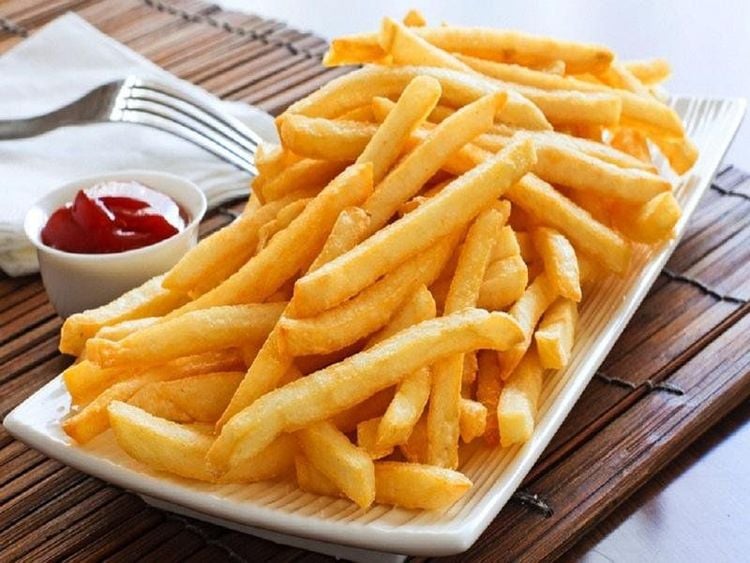
Khoai tây chiên chứa nhiều tinh bột
13. Constantly snacking
Snacking produces less saliva than a main meal, leaving bits of food stuck in the teeth for longer. Avoid snacking too often, instead choose snacks that are low in sugar and starch.14. Chewing on the tip of a pencil
Some people have a habit of chewing pencils while focusing on work or study. Like eating ice, chewing on hard things carries the risk of chipping or cracking your teeth. Sugar-free gum is a better option if you enjoy chewing. Sing-gum will activate the flow of saliva, making teeth stronger and resisting acids that eat away at enamel.15. Drink coffee
The color and acidity of coffee can cause teeth to yellow over time. Fortunately, this is one of the easiest stains to fix with various bleaching methods. Therefore, you can visit your dentist if you are concerned about discoloration of your teeth.16. Smoking
Traditional cigarettes and other smoking products have the potential to stain teeth and even cause tooth loss due to gum disease. Cigarette smoking can also cause cancers of the mouth, lips, and tongue. Keeping a beautiful smile is one of the good reasons to quit smoking, especially for women.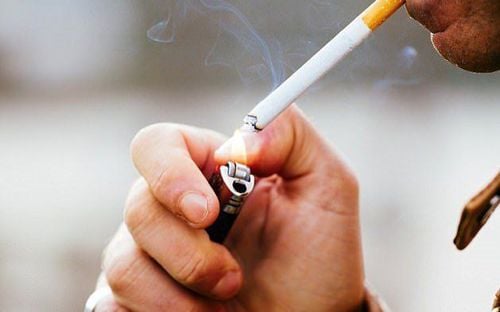
Hút thuốc lá có thể gây ung thư miệng
17. Drink red wine
The acids in alcohol will erode tooth enamel, creating protrusions that make teeth more susceptible to staining. Red wine also contains chromogenic pigments and tannins that adhere to teeth.18. Drink white wine
The acids in white wine weaken tooth enamel, making teeth porous and more prone to yellowing if you consume other dark foods, such as coffee. Gargling with water after drinking alcohol or using a toothpaste with a mild whitener will help counteract the harmful effects of red and white wine.19. Eating disorders
Eating disorders, specifically bulimia, will cause you to consume excessive amounts of sweets, leading to tooth decay. On the other hand, anorexia and vomiting syndrome is even more damaging to oral health. The strong acids present in vomit will corrode the teeth, making them brittle and weak, and also cause bad breath. Overall, eating disorders can lead to a host of serious health problems, so see your doctor if you have one.Vinmec International General Hospital is the address for examination, treatment and prevention of diseases, including the specialty of Dentistry - Jaw - Face. When performing the examination process at Vinmec, customers will be welcomed and used modern facilities and equipment along with perfect medical services under the guidance and advice of experts. Good doctors, well-trained both at home and abroad.
Please dial HOTLINE for more information or register for an appointment HERE. Download MyVinmec app to make appointments faster and to manage your bookings easily.
Article referenced source: Webmd.com



